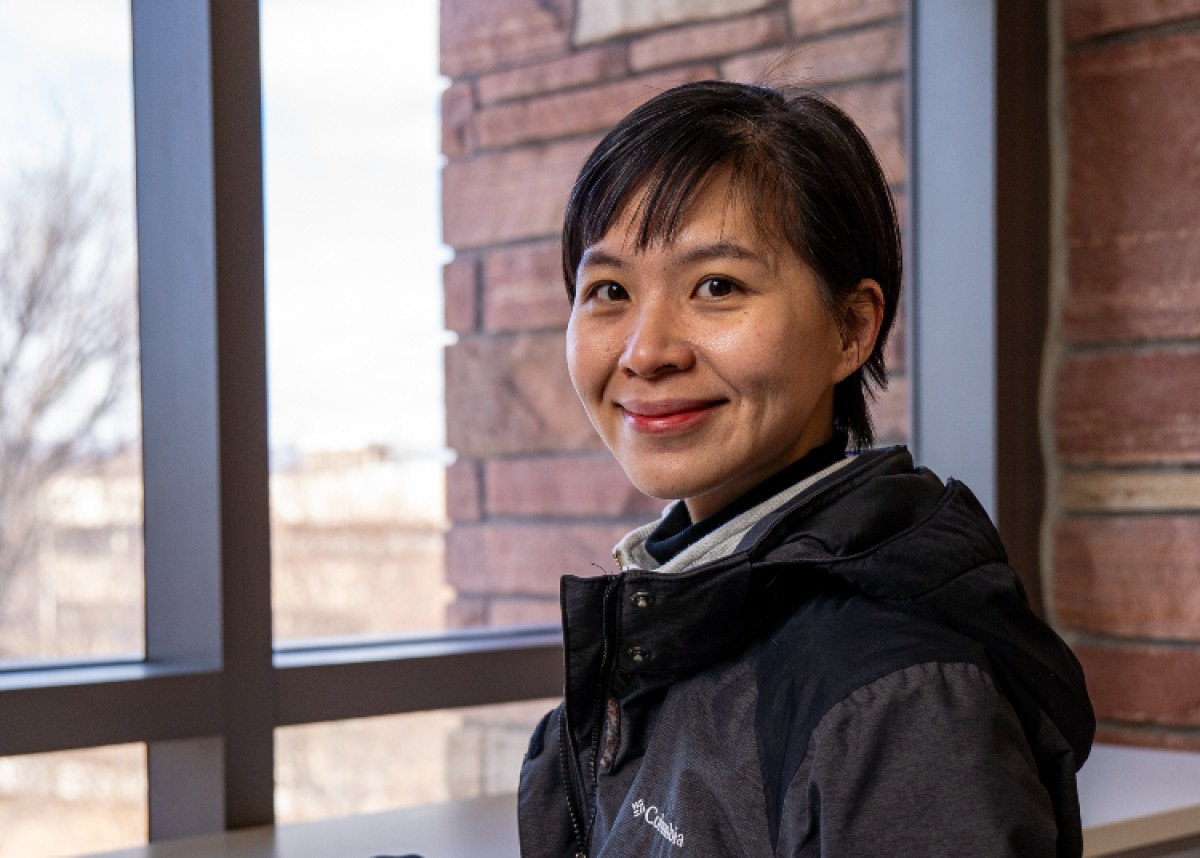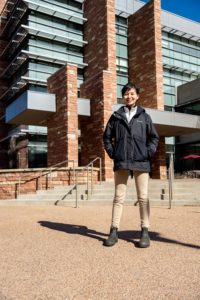
Heidi Tseng, fourth year Ph.D. candidate in the Department of Human Development and Family Studies at Colorado State University, is one of three students to receive the 2022-23 Dean’s Fellowship from the College of Health and Human Sciences. Tseng researches the motivational and attitudinal factors contributing to better health and well-being in the second half of life. Tseng seeks to reinforce the recognition of older individuals, and through this dedication, was awarded a $20,000 grant to continue research through the CHHS Dean’s Fellowship.
Tseng’s research first began in 2000 as an undergraduate in Taiwan. It was there that she re-evaluated what it takes for humans to grow and thrive. Tseng has since been motivated to explore the paradoxical relationship between joy and sorrow, or juxtaposing conditions, to better understand one’s sense of self-being.
During her time at CSU, Tseng has been mentored by HDFS Professor Manfred Diehl. Tseng relayed that Diehl has played a critical role in her success and research.
To learn more about Tseng and her groundbreaking research, read the interview below.
Tell us about your undergraduate experience. What inspired you to continue to grad school and to apply for the Dean’s Fellowship?

I was part of the parenting and child development lab directed by Dr. Keng-Ling Lay, an associate professor in the Department of Psychology at National Taiwan University. She introduced me to the concept of socio-emotional development and how parents and their children as a duet mutually reinforce each other’s behaviors and create opportunities to co-develop together. Yes, we keep growing after the period of adolescence.
As an undergrad research assistant, I was offered opportunities to work closely with graduate students in observing and assessing the quality of mother-child interactions. I was also involved in other research activities, such as attending scientific conferences and collaborating on poster presentations. These experiences gave me a sense of what it feels like to be a graduate student and have a career as a full-time researcher.
My decision to apply for the CHHS Dean’s Fellowship was multi-fold. As I am entering the 4th year of the Ph.D. program and pivoting from coursework to dissertation research, the CHHS Dean’s fellowship award is timely and greatly supports my professional development. On the one hand, it offers a unique opportunity to complete a research project with a group of excellent mentors. On the other hand, the award protects my time to dedicate myself to executing the proposed dissertation projects when my funding from my mentor’s NIH grant ended. Finally, I also see how the Dean’s Fellowship is a launching pad to position myself to become competitive for future postdoctoral fellowships.
Can you describe your research project and its significance? What do you hope will be the long-term impacts of your research?
I study motivational and attitudinal factors contributing to better health and well-being in the second half of life. I am particularly interested in learning more about psychological and behavioral factors that contribute to the well-being paradox of aging. Despite many losses in cognitive, physical, and social domains of life at this stage of life, older adults can maintain their subjective well-being.
I always envision a better world where every generation benefits from recognizing the invaluable contributions of the graying population, who are emotionally more stable, experienced in skills, and wise about what matters. It is my hope that my interdisciplinary training at CSU across public health, prevention science, and gerontology will eventually contribute to and facilitate the progress of both basic science and applied research in promoting healthy and optimal aging in late life.
What inspired you to focus on this research?
After graduation, I worked at the Taiwanese National Health Research Institute for eight years. During that time, I coordinated the Healthy Aging Longitudinal Study in Taiwan and an auxiliary preventive intervention targeting mild cognitive impairment. In the field sites, I was distressed by seeing many [older adults] suffering from chronic diseases and living with untreatable pain. Meanwhile, I was in awe when seeing many of them lead an active and productive life, telling me that their later adulthood was the best time in life. In hindsight, I assume it was years of interviewing and observing older adults that directed me from the study of optimal child development to gerontology. Specifically, the paradoxical coexistence of sorrow and joy, as well as illness and wellness, made me wonder if there exist universal inner attributes and determinants of well-being. Also, under what circumstances do the inevitable functional and health declines with aging no longer stand in the way of leading a satisfying life?
How has your college education helped you get this far in your field?
My interest in human development and psychology began with studying social relations in early childhood as an undergraduate in Taiwan. As an undergrad in late 2000, my volunteer experience in post-war childcare and hospice care centers in Amman, Jordan forced me to reevaluate what it takes for humans to grow and thrive. Coursework in psychology did not offer me definite answers to these difficult questions. Instead, it offered a framework for thinking that was developmentally and ecologically more considerate. The ability to think and express my thinking in a systematic way is very empowering and rewarding in itself. With these experiences, I no longer take normal development for granted and I have a better understanding of the interconnectedness of this life and what it truly means when someone says, “it takes a village to raise a kid.”
How have your mentors helped to guide you throughout your career so far?
I have been very fortunate to have wonderful mentors along the way. Dr. Manfred Diehl, my mentor at CSU, has been playing a critical role in guiding me through the doctoral program of study. He has a strong sense of direction for research and a career goal as an independent researcher who does team science. With a wealth of knowledge and experience in academia, he has never ceased entertaining my half-baked research ideas and scaffolding them into a real deal, such as the funded research proposal for CHHS Dean’s Fellowship. From many aspects of my professional development, I benefit from his years of excellence in research, service, and networking, as well as his dedication to nurturing next-generation researchers.
The Department of Human Development and Family Studies is part of CSU’s College of Health and Human Sciences.